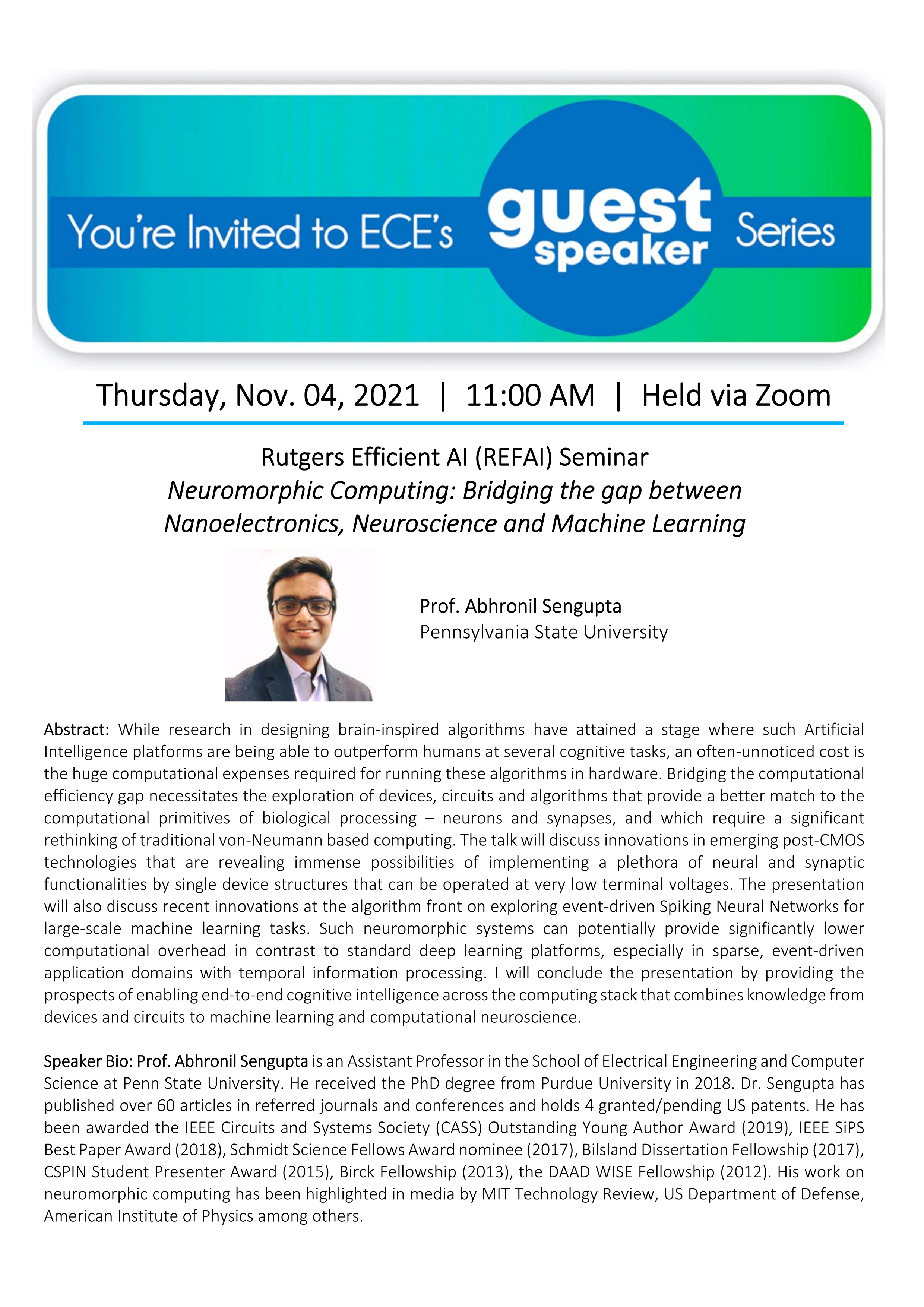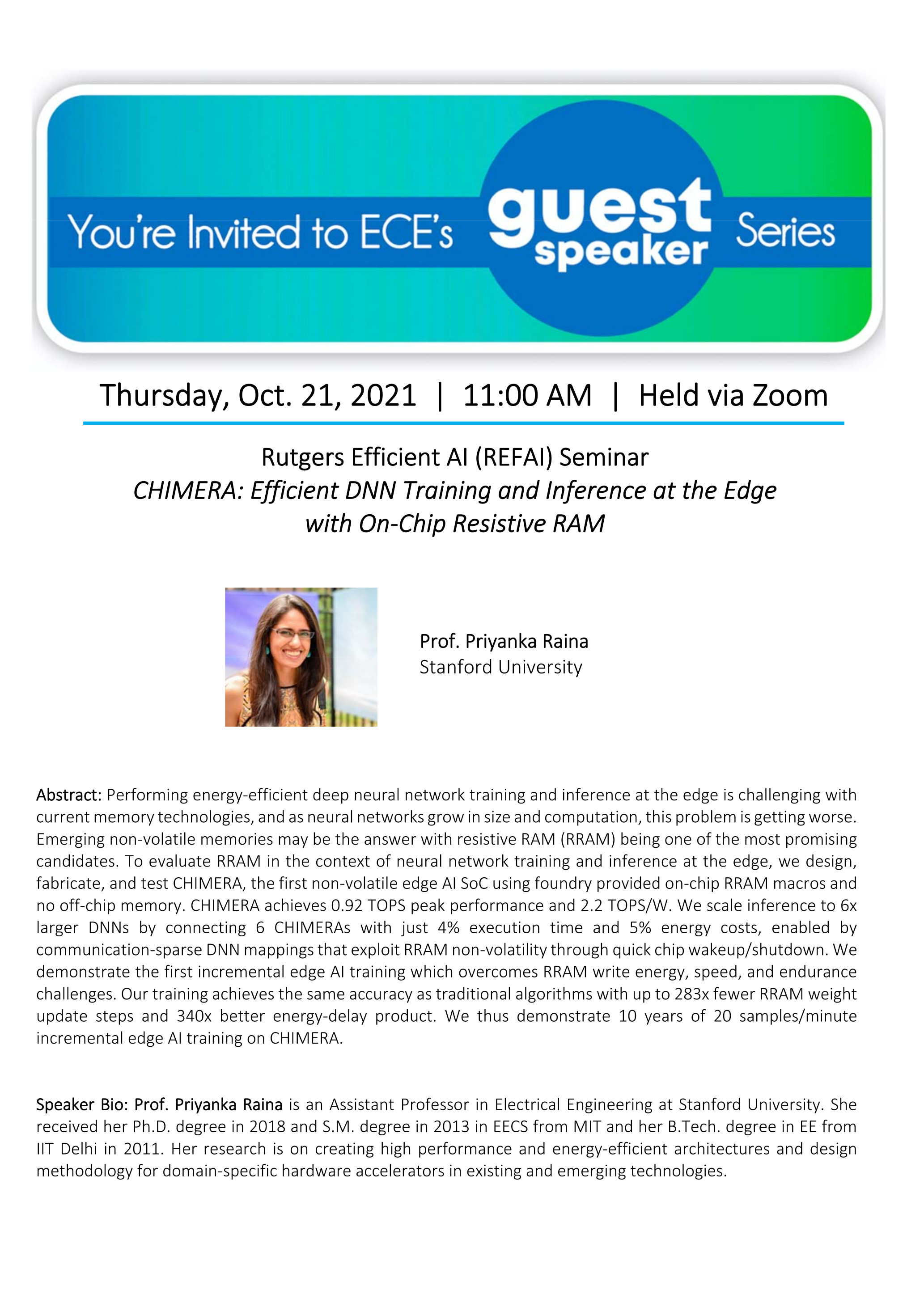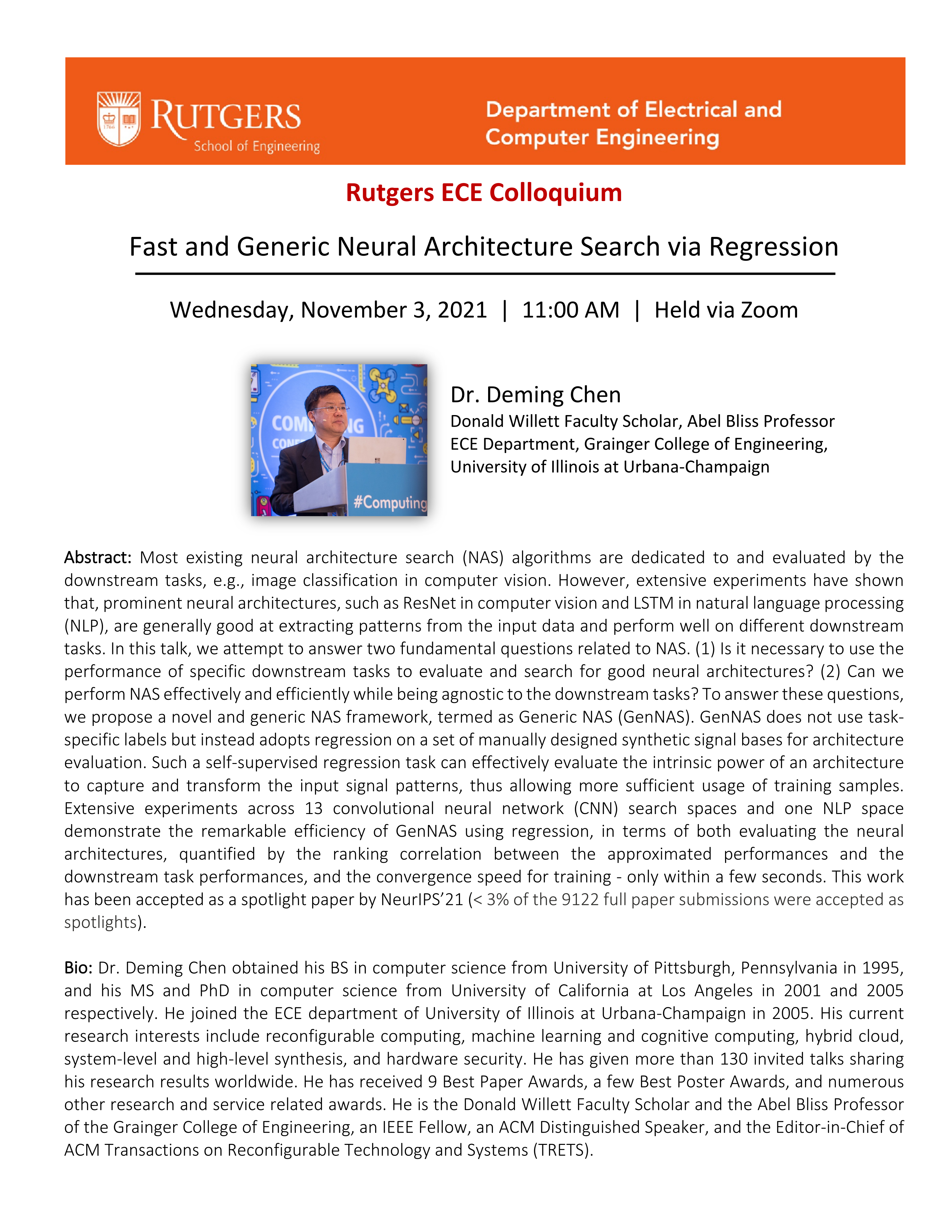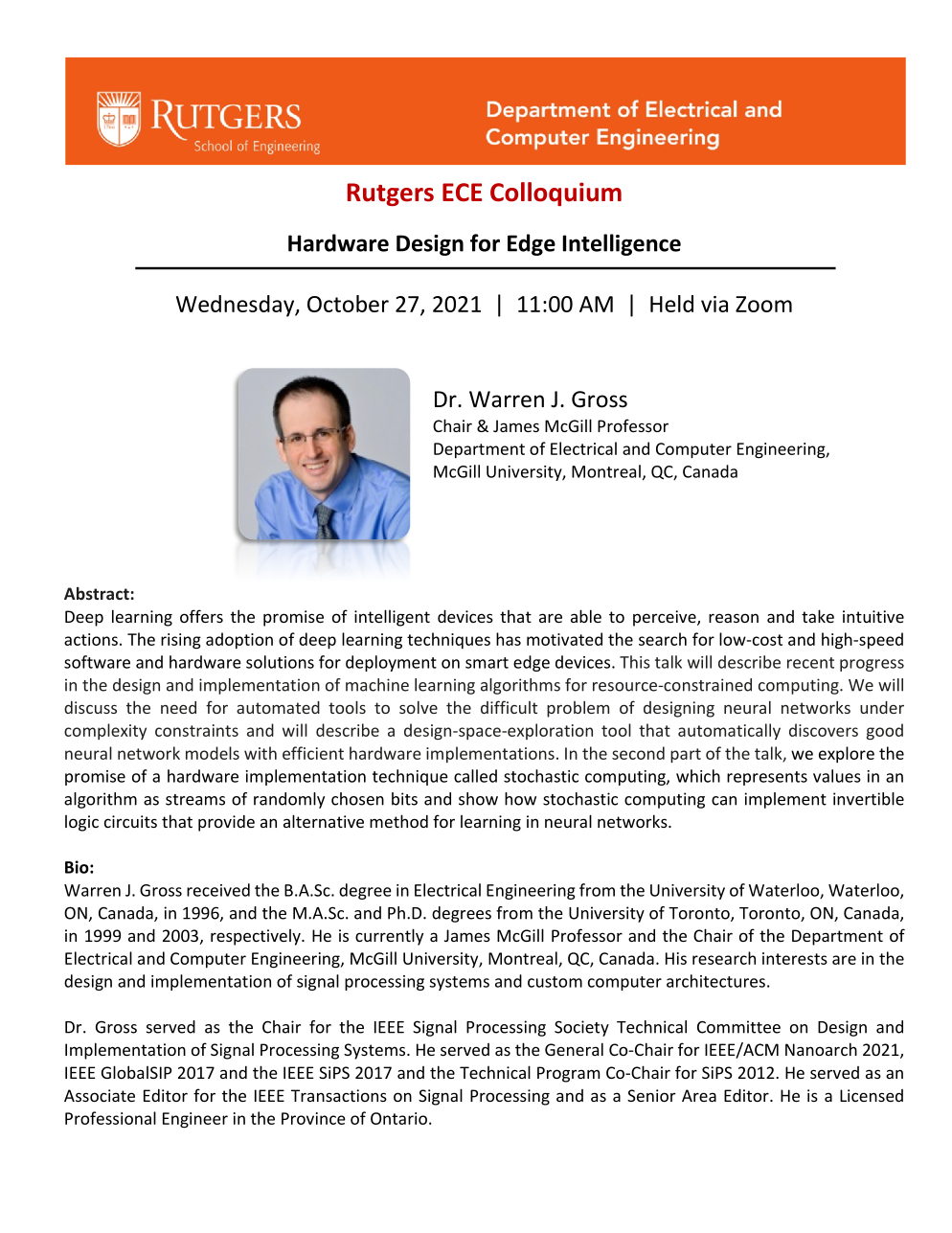Guest Speaker Series - Efficient AI Seminar - "Neuromorphic Computing: Bridging the gap between Nanoelectronics, Neuroscience and Machine Learning"

Laleh Najafizadeh receives NIH Grant for developing Networked Neuroprosthesis for Spinal Cord Injuries
ECE BSMS Program Overview
ECE BSMS Program Overview with ECE Grad Director, Dr. Yingying Chen.
Password: 372664
ECE Colloquium - Dr. Deming Chen, University of Illinois at Urbana-Champaign
Salim El Rouayheb receives ARL Grant to Design Machine Learning Algorithms for Tactical Edge Communication Networks
ECE Associate Professor Salim El Rouayheb is the recipient of a new award from the Army Research Lab (ARL) for the project titled "Machine Learning Algorithms and Optimizations for Resource-Constrained Tactical Edge." Dr. El Rouayheb is the Rutgers PI on a three-year $1.2 million collaborative effort with the University of Illinois at Chicago (UIC), with Rutgers share of the award being $497,000.
In this project, Dr. El Rouayheb and his collaborators aim to improve the speed and accuracy of AI-based edge solutions through a model-distributed framework for faster and lightweight AI/ML inferencing. The focus will be on understanding the potential and impacts of model distributed inferencing for resource-constrained tactical edge networks. The project will first investigate early exit mechanisms based on E2CM, a novel Early Exit technique based on Class Means of samples. Moreover, the project will study decentralized learning algorithms, for real-time learning and inferencing. The security of these algorithms against passive and adversarial attacks will be investigated using secure coded computation. Finally, the project will develop a heterogeneous distributed computing testbed consisting of commodity end devices and edge servers to implement and validate the obtained algorithms.
ECE Colloquium - Dr. Warren Gross, McGill University
Rutgers Engineering Series - Engineer to Entrepreneur
Guest Speaker Series - Efficient AI - CHIMERA: Efficient DNN Training and Inference at the Edge with On-Chip Resistive RAM








